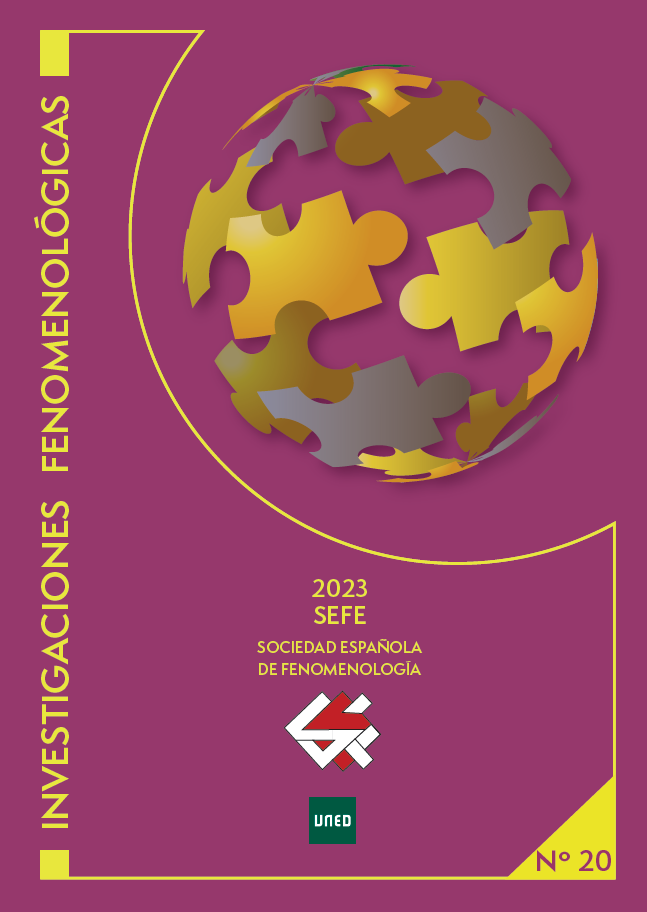Critical Notes on the <i>Leib-Körper</i> Distinction in <i>Ideas II<i> and the Centrality of the <i>Leib-Körper</i> for the Phenomnology of the Body
DOI:
https://doi.org/10.5944/rif.20.2023.36765Keywords:
Husserl, Body, Phenomenology, ExperienceAbstract
This paper analyzes the terms used by E. Husserl in the second volume of Ideas Relative to a Pure Phenomenology and a Phenomenological Philosophy. Phenomenological investigations on the constitution to designate the human bodily existence. Given the semantic range of notions presented by Husserl, we are interested in the concept of Leibköper. Our central aim is to show the independence of that concept with respect to the pair Leib and Körper. The Leibkörper allows us to describe a dimension of experience that the other two notions do not seem to exhaust. The interpretations of E. Behnke (1996) and N. Depraz (2001) on the concept of Leibkörper are also discussed in the paper. While for the former, it would be a strictly naturalistic definition of corporeality that must be excluded in the phenomenological attitude, for the latter it is, rather, an essentially phenomenological concept, that of the lived body. Taking into consideration the interest for the foundation of a Phenomenology of corporeality that animates this work, the clarification of this notion is of vital importance.
Downloads
Downloads
Published
How to Cite
Issue
Section
License
Copyright (c) 2023 Investigaciones Fenomenológicas

This work is licensed under a Creative Commons Attribution 4.0 International License.
![]()
Reconocimiento (by): Se permite cualquier explotación de la obra, incluyendo una finalidad comercial, así como la creación de obras derivadas, la distribución de las cuales también está permitida sin ninguna restricción.






